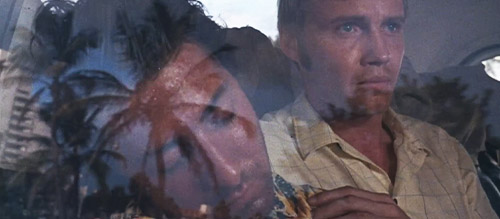5 Reasons Why You Need to Watch Midnight Cowboy
5. The Story
In Martin Chilton’s anniversary piece for The Independent (2019), “How Midnight Cowboy Defied a Political Backlash and an X-Rating to Win the Best Picture Oscar”, it is noted that James Leo Herlihy, who wrote the “Midnight Cowboy” novel that was published in 1965, said ‘that he was drawn to writing about “life’s marginalised people”…’ and thus wanted his novel to be ‘… a realistic account of New York’s underbelly’.
The combination of this source material and the hiring of John Schlesinger in the role of director – who as an openly gay, Jewish man in 1969 would have been able to draw from his own personal experiences of marginalisation – helped to create an incredibly frank depiction of the lives of those existing on the edges of society. This mix, combined with two of the most memorable performances in cinematic history from Hoffman and Voight, ensures Midnight Cowboy conveys the truth of New York’s unwanted and then bathes them in the full spectrum of human emotion and heartbreak.
Midnight Cowboy is not some sordid exposé of the seedy parts of our civilised society with all of its villains and outcasts; no, it is the revelation that these supposed social rejects each have their own humanity, very much akin to our own, and thus the outrage that basic rights are denied of them time after time comes to the fore. This film does not tell the mere tragedy of poverty, but of its injustice: the only thing that separates Rizzo and Joe from the population of the Big Apple’s penthouses is quite literally the money in their pockets. They still have the right to dream; they still have the right to love and be loved. In fact, Joe and Rizzo’s dreams and aspirations make them far more real than those who move in the circles of high society.
Following in the words of Mr. O’Daniels’ own sermon, Midnight Cowboy follows the tale of lonesomeness, but not just the occasional sense of isolation we have all experienced from time to time, but that specific, truly terrible lonesomeness that saturates through the ranks of the poverty-stricken underclasses, putting a chokehold on all whom it touches. Abandoned by all his family, not even receiving a note when his grandmother passed during his serving in the armed forces, Joe has no meaningful relationships in his life, with any lasting remnants torn away from him by the cruel gang rape of the townsmen. Traumatised, neglected and ill-equipped for the real world, Joe’s days are filled with the tedium of his soulless work as a dishwasher – the emergence of the Midnight Cowboy, New York’s newest gigolo, was Joe’s big break away from this pervading lonesomeness. What better way to cure loneliness than by throwing yourself in the arms of a thousand lovers? Especially if loving was the only thing you were ever good at.
Enrico, ground down by the unforgiving New York underbelly from years on the streets is almost reminiscent of Shakespeare’s “Richard III” in his particular loneliness:
“Since I cannot prove to be a lover… I am determined to prove a villain”
Rizzo fully plays up to the role of slimy conman, stealing from the hard labour of others and repelling any real human connection by his abrasive nature and vitriol. He even shamelessly laughs in Joe’s face when confessing to the scam he pulled on him when their paths cross again. Undoubtedly, Rizzo has been moulded into this slippery persona through the necessity of survival, but to quote the age old platitude: he is not truly living, merely existing. Is this why he reaches out to Joe Buck? To cure himself of this terrible lonesomeness? And why Joe? Because he’s the first person to show any genuine kindness and warmth in a long time; because Joe is also trying to rid himself of his lonesomeness? In seeing Enrico starting to build his own breakaway plan, his own dreams about a new life in Florida, the answers to these questions become obvious. The figurative reaching out of Enrico’s hand to then be taken firmly by Joe’s is one of the most intensely beautiful moments of human intimacy seen on the silver screen.
So, maybe Midnight Cowboy in the eyes of the modern viewer falls into clichés, hurtful tropes and stereotypes from the main characters’ internalised homophobia to the disabled Enrico Rizzo’s status of villain and victim, but in actually watching the story we can see the film is not the confirmation of these stereotypes but the illustration of how these roles are enforced upon us through an unforgiving society focused on productivity rather than happiness. With no accommodation for his needs, Rizzo will turn to petty crime to survive. Trauma arising from child abuse, religious shame and emasculation will naturally play havoc on sexual identity. Dismissing the film on its problematic themes will deny us the realisation of the true villain of these men’s lives, the failure of the American Dream.
Recommended for you: 5 Must-Watch Early British LGBTQ+ Films
It may feel safer to indulge ourselves in the escapism of the seemingly harmless, nostalgia-inducing cinema churned out by the major studios (especially with the genesis of Disney+), but Midnight Cowboy is an example of cinema that provides real nourishment to the mind and soul, providing us with a tragedy that will help us to arm ourselves against the great injustices of the world that sadly still prevail, even 50 years on.
Be sure to follow The Film Magazine on Facebook and Twitter to never miss another article like this one.


